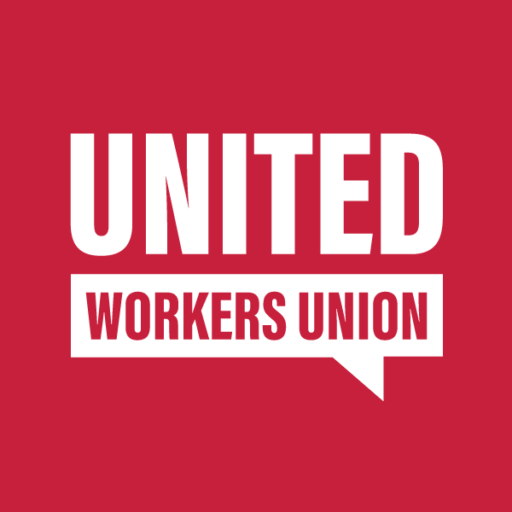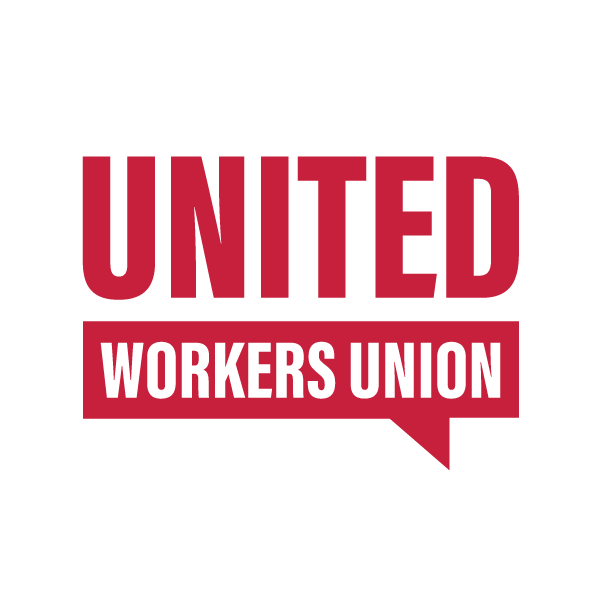As Melbourne’s hospitality industry reopens a new union report has revealed 77 percent of hospitality workers believe a permanent and secure job is either very or extremely important, showing that the industry’s dramatic shutdown in March has had a profound impact.
The report by Hospo Voice, the United Workers Union’s hospitality arm, is based on national surveys with 4281 workers during the pandemic and busts one of the hospitality industry’s biggest myths: that the irregularity of hospitality work is a lifestyle choice by workers. Overwhelmingly, workers report that a regular and reliable income is vitally important.
The findings come as the Federal Government’s proposed industrial relations reforms are expected to announce “part time flexibility” measures rather than address the systemic issues of insecure work and widespread wage theft.
The report, entitled #RebuildHospo: A Post-Covid Roadmap For Secure Jobs In Hospitality, reveals that during the pandemic the number of workers who believe a permanent job is very or extremely important jumped by 12 percent from 65 percent to 77 percent.
The report lifts the lid on how insecure work acts a force-multiplier for the biggest problems in the industry including wage theft and sexual harassment, as well as playing havoc with workers’ lives with 70% reporting that shifts were reduced with little notice, and over 60% saying their shifts varied dramatically from week to week.
This shaky ground on which workers are forced to stand and build their lives on is what has made the most devastating impacts of COVID-19 even worse, when the industry shut down overnight on 23 March 2020.
Insecure work has also been linked directly by public health officials, such as Dr Brett Sutton, as an important factor driving the spread of the pandemic.
The report finds that at the height of the pandemic 85% of hospitality workers had their shifts cut or they lost their jobs. Furthermore:
- 47% of workers did not have enough savings to cover a month’s basic expenses;
- 7% of workers have had to borrow money from friends or family; 32% have accessed their super; 32% fell behind in their bills;
- 20% went without essentials; 12% had to access a foodbank or charity;
- 7% experienced a relationship breakdown
- 91% of workers said they are worried about mental health in hospitality, while sexual harassment remains a major concern, particularly for women workers.
You can find the full report here: https://uwu.org.au/rebuildhospoapostcovidroadmap
The trauma of COVID-19 acted as a catalyst for workers to organise and build a new vision for their industry. More than 10,000 workers have taken part in petitions, surveys, online meetings and protests. Union membership has increased by 76%.
Workers have endorsed a roadmap that calls for: greater job security; criminalising wage theft across the country; zero tolerance of sexual harassment; and enhanced visa rights for migrant workers.
The report’s release comes as another major wage theft scandal hits the industry. On Friday A Current Affair revealed NSW-based hospitality empire The Sydney Collective stole an estimated half a million dollars from five chefs at its harbourside hotel, the Watsons Bay Boutique Hotel.
Comment attributable to Tim Kennedy, National Secretary United Workers Union:
“Hospitality workers have told us they want safe and secure jobs with regular hours. For too long, employers have demanded extreme flexibility from their workers and given absolutely nothing in return.”
“United Workers Union will stand with workers to rebuild hospo for the better—putting an end to wage theft and ensuring all hospo workers have a job they can count on.”
Worker comments at the height of the industry shutdown:
“I have a baby due to be born in the next few weeks. I also have home loan repayments, and other bills to pay. Between the home loan repayments, and a newborn on its way, I have little savings. In just a few months’ time, I can see myself having to raise my child from the back seat of my car.” – David, Chef, QLD
“The cafe I worked at underpaid me over two and a half years. I missed out on penalty rates and I was paid below the legal hourly minimum. I worked out they owed me at least $18,000. That meant that when Covid hit I didn’t have that money to fall back on. Covid really opened my eyes to just how insecure all our jobs are. We need more permanent jobs in the industry, so we have more security and real rights we can enforce.” – Claudia, Café Worker, QLD
“Unstable hours have really affected my mental health in the past. My current bartending position has been put in jeopardy unjustly multiple times and has made me feel worthless and unhappy. It is also frustrating to have shifts cancelled when you’re already at work, where I could have been working at my other job had they just not rostered me on.” – Brittney, Bartender, VIC
“As an international student, our 20 hours working limit was already making life hard enough. Then last week I just got an email saying that my employer has to cut all casual workers hours. I am so stressed and scared. I can’t focus on my studying. I feel like I have got nowhere to go and ask help. I just want to be treated as other citizens since I have been paying tax and enormous school fees in Australia for over two years.” – Nil, Front-of-House staff, VIC

